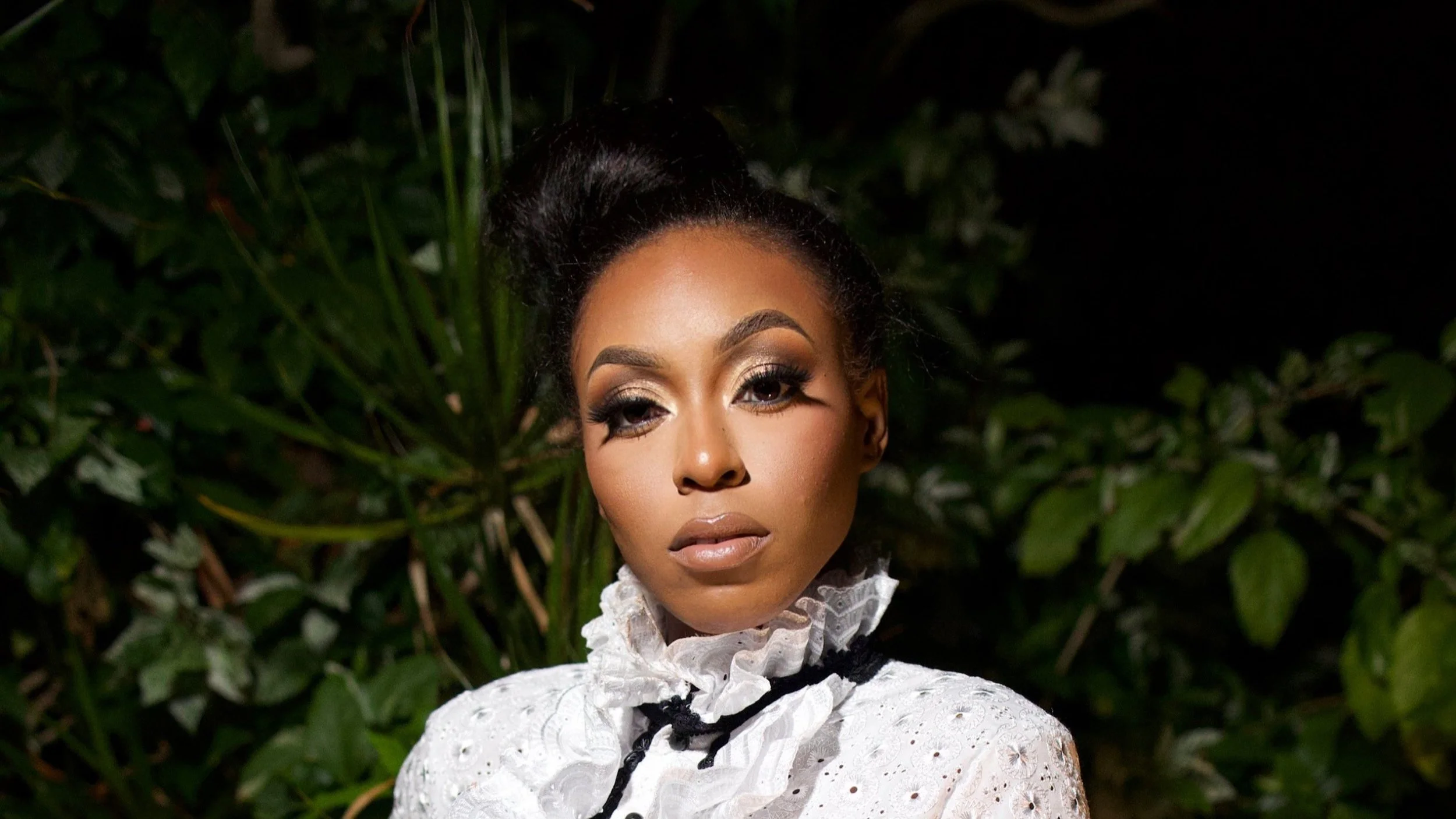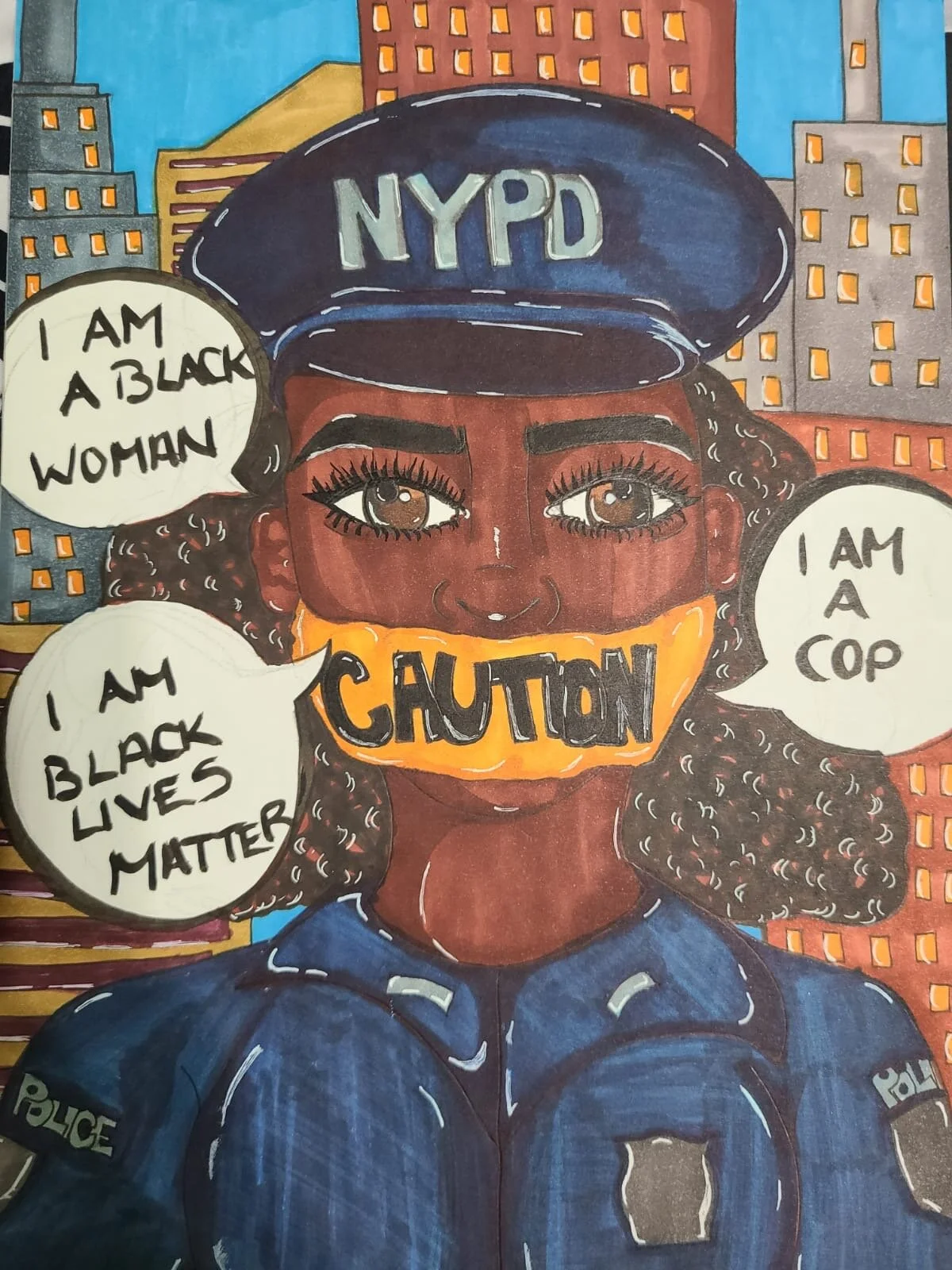HERstory: 5 Badass French Caribbean Women Intellectuals That Need to Be in History Books
written by guest contributor Yasmina VICTOR-BIHARY
Growing up as a Caribbean woman, rarely were women who looked like me highlighted in history books. While history classes across the Americas and Europe highlight the achievements of women like Harriett Tubman, West Indian women rarely saw our own heritage represented. In light of Women’s HERstory month I researched five powerhouse Caribbean intellectuals who are underrated. Each possessed a different talent and achieved something that helped pave the way for a better future for women —women like me and you.
1. Gerty Archimède: The Guadeloupean lawyer who helped Angela Davis
Gerty Archimède was born in Guadeloupe in 1909. A mayor’s daughter, Archimèdeiconic is iconic. She was the first Afro-Caribbean female lawyer to pass the Guadeloupe bar exam and the second woman to be elected as a deputy in the French National Assembly (just two years after French women received right to vote).
She was a feminist and activist. Archimède created the Guadeloupean section of the Union of the French Women (political party). As a lawyer she defended the famous activist Angela Davis, preventing Davis’ arrest. Davis was accused of bringing Marxists books from a return trip from Puerto Rico. She had her own political beliefs and was not afraid to share them.
In 2019, the island of Guadeloupe celebrated Archimède, with an entire year renamed “Gerty Archimède,” in celebration of her legacy. In 1989 Archimède died at the age of 71 .
2. Suzanne Césaire-Roussi: Founder of a political activist review
Book cover
Suzanne Césaire-Roussi was the wife of Martinican author and politician Aimé Césaire. Césaire-Roussi was born in Les Trois-Ilets, Martinique in 1915. A writer, teacher and activist, she was also the co-founder of the political activist review “Tropiques.”
“Tropiques,” was created to organize intellectual resilience and fight against the Vichy regime in the French Caribbean territories (Guadeloupe and Martinique). The concept of “négritude” (a literary movement amongst French speaking Africans in protest against French colonization) was born. Negritude celebrated African heritage and the Afro-Caribbean identity. “Tropiques,” provided French Afro-Caribbeans an agency and platform for intellectual thought and expression.
In 2009, Guadeloupean writer Daniel Maximin directed the publishing of Césaire-Roussi’s essays in “The Great Camouflage: Writing of Dissent (1940–1945).” Martinican researcher Anny-Dominique Curtius has paid tribute to her in a dedicated book “Suzanne Césaire, Archéologie Artistique et Littéraire D’une Mémoire Empêchée,” (Suzanne Césaire: Artistic and Literary Archeology About a Prevented Memory).
3. Eugénie Tell-Eboué: The first Black woman elected in the French National Assembly
Madame Eugénie Tell Eboué, French National Assembly (fair use image)
In 1891, Eugénie Tell-Eboué was born in Cayenne, French Guiana. A politician and teacher, she was the wife of Felix Eboué, a French colonial administrator and free French leader. She traveled extensively with her husband and learned much throughout his career. She lived in different countries in the French Caribbean islands and Africa.
In French Guiana, Tell-Eboué worked as a teacher in Saint-Laurent-du-Maroni. In 1939, she joined the female auxiliary force as a nurse. She was sentenced to death in absentia in 1940 by the Vichy government for having joined the Resistance movement in France during WWII. The Allies’ victory canceled her sentence. In 1946, she was elected to the French Senate and reelected in 1948. Tell-Eboué was the first Black woman elected to the French National Assembly. She even represented France at the Conference of the West Indies held in the Virgin Islands.
While Tell-Eboué spent time in different countries, in Guadeloupe she was a political activist. She was elected as deputy, senator and municipal councilor in Grand-Bourg of Marie Galante island (Guadeloupe archipelago). Awarded with many medals, she died in France in 1972.
4. Paulette Nardal: The Literary Genius
Born in Saint-Pierre, Martinique in 1896 as Félix Jeanne Paule, Nardal was a journalist, writer, activist, teacher of English and feminist. She was the first Afro-Caribbean woman to study at the prestigious La Sorbonne University in Paris.
Perhaps the concept of erasure of black history or poor note taking has made her one of the most underrated historical figures. She is one of the founding figures of the Négritude movement, often embodied by Aimé Césaire. With two of her sisters, she is most known for founding a literary salon in Clamart, Paris. The salon, located in 7 Hébert Street, reflected work from Black writers and politicians such as René Maran, Senghor and Aimé Césaire among others.
As an English literature student, she translated poems, writings and essays from Black authors in the U.S. in attempts of raising “Black awareness.” Her Ph.D. thesis was about abolitionist Harriet Beccher Stowe.
In 1931, she went on to found her own newspaper “La Revue Du Monde Noir” (Review of the Black World ). Nardal would read her translations from Black authors from the U.S. In the late 1940s, she represented the French West Indies in the United Nations. Nardal was a woman beyond her time. She dedicated her life to her fulfilling work and remained single —a concept seen as unconventional in her day. She died in 1985 and many associations demand her pantheonization (to be buried in the Pantheon).
5. Maryse Condé: Winner of the 2018 New Academy prize in Literature
“I could not write anything unless it has a certain political significance.”
- Maryse Conde -
These words have set the tone for Maryse Condé’s work. Born as Maryse Boucolon in 1937, Condé grew up in Pointe-à-Pitre, Guadeloupe. A wordsmith and journalist, Condé has written over 20 novels and serves as professor emerita of French at Columbia University. She earned her M.A. and Ph.D. in comparative literature at Paris-Sorbonne University.
During a period of decolonization she taught in Guinea, Ghana and Senegal. Conde has received much praise for her novel “Segu” for which she won he New Academy Prize in Literature in 2018. Set in Segou (which is now part of Mali) “Segu,” follows a royal family touching on white colonization, the violent impact of the slave trade and the conflicting elements of eastern and western religions.
The New Academy Prize in Literature is considered an alternative to the Nobel Prize in Literature. Some of Condé’s other notable works include “I, Tituba, Black Witch of Salem,” a fictional piece about the Salem witch hunts and “Winward Heights,” a Caribbean take on the classic novel “Wuthering Heights.”
Condé has adamantly expressed the importance of representing the island of Guadeloupe in receipt of her awards.
“Guadeloupe is mentioned only when there is a hurricane, but I have always been convinced we have a wonderful culture fabricated from various influences: Europeans, Africans, Indians, Chinese. Winning this prize would mean that our voice, the voice of the Guadeloupeans, is starting to be heard. It would be the beginning of a true Guadeloupean identity.”
- Maryse Condé -
Condé serves as a reminder of how powerful words can be.
These five French Caribbean women who were innovators and leaders are a reminder of the importance of representation and activism. Perhaps our present generation can cultivate a Caribbean “role models” culture —one where we draw strength from our foremothers in hopes of achieving an equal lifestyle for our future daughters.
About the author: Yasmina VICTOR-BIHARY was born and grew up in Guadeloupe islands. Currently based in Cardiff, Wales (UK), she’s fond of politics and feminism subjects. Descent of BIPOC parents (Indo-Caribbean and Afro-Caribbean), she’s definitely aware of racial issues at stake. She studied in Paris, Humanities, Political Science and graduated in Business Intelligence and Communication. She loves talking about Caribbean literature and in her spare time, she’s a French professional proofreader and freelance writer. Partly raised by her grandmother, the latter is a great source of inspiration for her.












